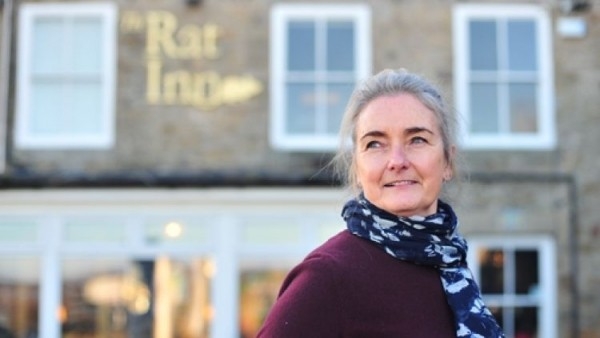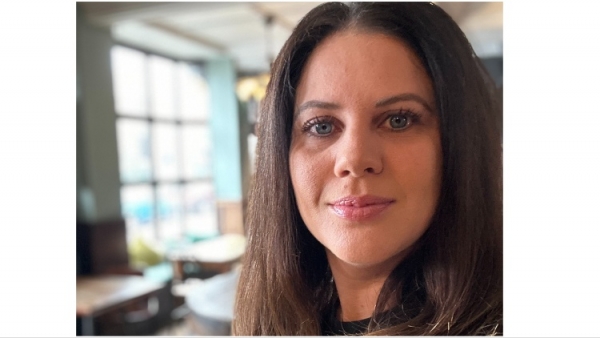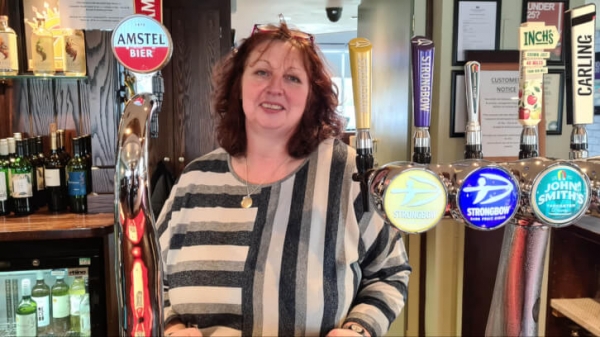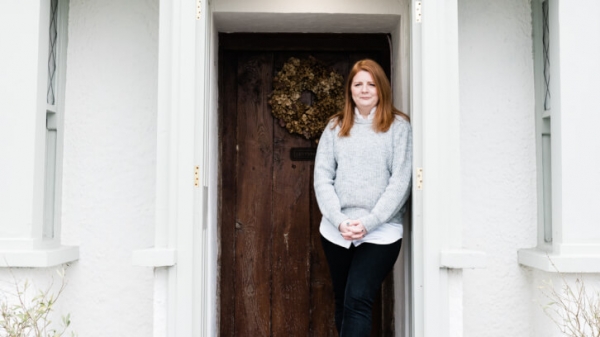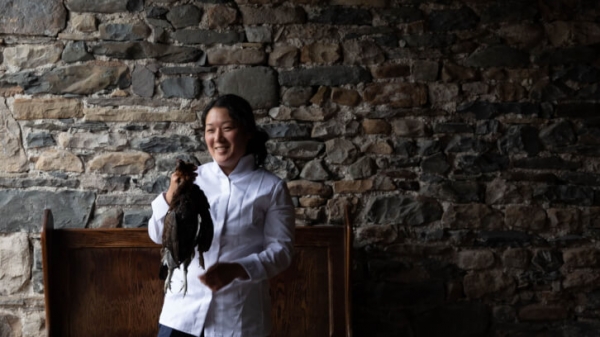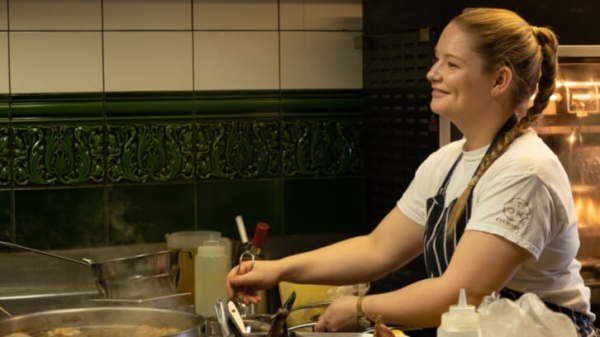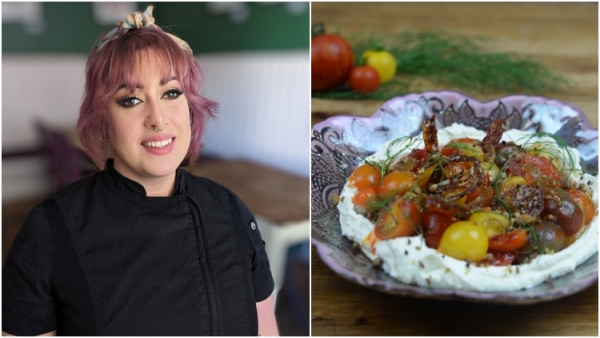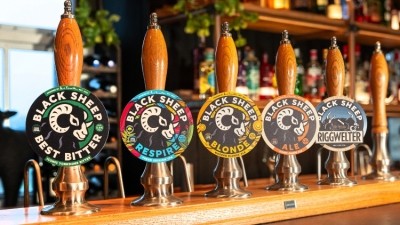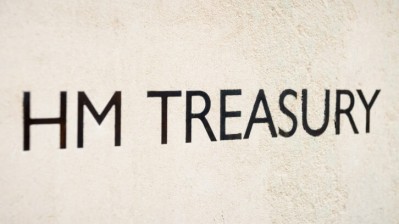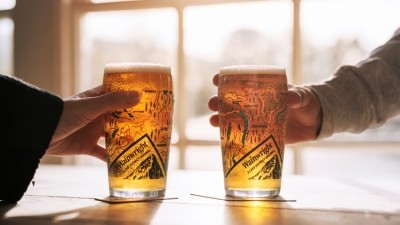INTERNATIONAL WOMEN'S DAY 2024
Female operators share how the sector can #InspireInclusion
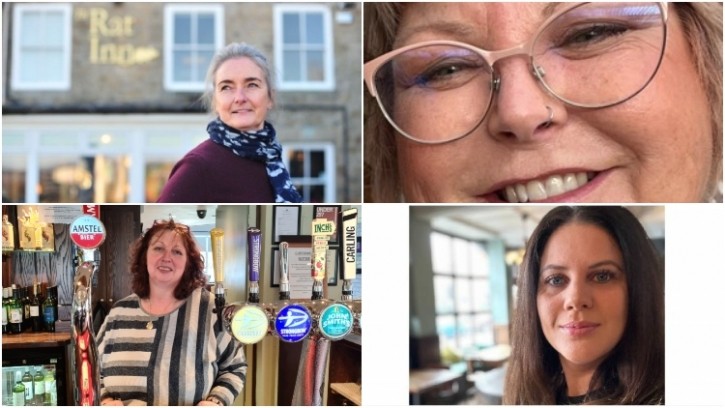
Name: Karen Errington
Job title: Partner
Place of work: The Rat Inn
As this year’s International Women’s Day theme is #InspireInclusion, what does this mean to you?
To me on International Women’s Day, this is a reminder for us to celebrate the achievements of women, specifically within our industry and to highlight female role models thus inspiring more women to join the industry.
Where do you see the sector as an inclusive place to work for women?
It’s much more inclusive than it was, over the years things have improved. Female representation within top levels is an important image as it encourages young girls to enter the industry.
The more females in the industry the more it organically becomes more inclusive. The culture in kitchens has also changed over the years, the laddish culture is no longer acceptable. Businesses recognise the benefits of having a more diverse work environment and the particular qualities females can bring to the table.
Hospitality is the most people oriented of businesses and having that same diversity within that workplace just makes sense.
What are the main barriers to preventing inclusion?
The main barriers to inclusion are the unsocial hours and work/life balance is a huge problem. Factoring a family into the equation can be impossible at times. Providing flexible working, for example in a kitchen environment, is very difficult due to the unsocial hours required to deliver the hospitality service. Though since Covid, we have noticed customers prefer earlier booking time slots than previously, which does help.
The biggest barrier we must overcome and the solution to being able to overcome these problems is still a pricing issue. The only way workers within the industry will never achieve a work/life balance is when people are willing to understand and to pay the correct price for food that is put on our plate in a professional food service environment.
How far has the sector come?
There are far more women represented in traditionally male dominated roles than there were, eg as chefs and particularly head chefs, running kitchen teams. There is still under representation of females in managerial positions especially in front of house roles, I think due to many taking on part-time positions within the industry due to family commitments etc but it is becoming much better than when I started out, employers are trying to make the work place more flexible.
Increasingly more girls are being encouraged into the trade as a positive result of more visible female role models on TV and in the media.
What more can be done to improve?
There’s still a long way to go, the industry is still often viewed as a stop gap job pre or post university, not as a career choice for women.
It is hampered by the unsociable hours and the fact it is still difficult to have a work/life balance.
Continuing to promote and highlight women in the industry definitely helps, it’s an ongoing process.
Also keeping conversations going i.e. talking to all staff, not just female and asking them what would make their working life better, making them feel valued. Just keep the dialogue going.
What advice would you give to other women in the industry?
I would say choose where you are working very carefully, do your research and work at the best place you possibly can.
The opportunities are limitless for those who want to make hospitality their career. It is an industry where we are always learning so don’t be blinkered, always keep up with what’s happening, do your research and keep up to date.
The other bit of advice I would give is think very carefully before embarking on self-employment, especially during these difficult times. There’s also lot to be said for paid holidays etc.
Name: Lucie Dallas
Job title: Pub licensee
Place of work: the Griffin at Whetstone and the Chandos Arms, Colindale, both leased pubs with Star Pubs.
As this year’s International Women’s Day theme is #InspireInclusion, what does this mean to you?
Creating a place where people can come together and where everyone feels welcome, comfortable and safe.
Pubs are ideally placed to do this and to play a valuable role as inclusive third spaces for the communities they serve. I’ve seen it first hand. When I started at The Griffin five years ago, the clientele was 80% men and 20% women. Now, thanks to an open door policy, it’s 50:50 and we have a wide variety of customers who enjoy mixing together.
It makes for a wonderful atmosphere and a busy pub.
Where do you see the sector as an inclusive place to work for women?
Front of house is a really inclusive place for women to work. 50% of the applications we receive for these positions are from women, which also reflects our customer base.
What are the main barriers to preventing inclusion?
I’ve not encountered any barriers. All I’ve seen is that women with drive, confidence and ambition who are willing to work hard are valued and can really progress in the pub sector.
In my own experience I’ve been inspired and helped by some amazingly strong women along the way, both working in pubs and in industries related to them, such as entertainment and brewing.
I’ve also been encouraged and supported by men at Star Pubs to fulfil my dream of having a pub of my own and then to expand to become a multiple operator.
How far has the sector come?
The pub industry has definitely progressed since I started out behind the bar 17 years ago. Back then while pub staff were often women, managers were predominantly male. That’s changed and it’s now a far more equal split.
As a 20-year-old member of bar staff in the early 2000s, I used to put up with a lot of inappropriate comments from male customers. Young women today are much more clued up about unacceptable behaviour and are willing to call it out.
People are more careful and considerate about what they say as a result, creating a more inclusive environment for female staff members and customers alike.
What more can be done to improve?
Although there’s an increasing number of amazingly talented, well-known female chefs, I’ve seen very few women apply for jobs in pub kitchens. It would be fantastic to change this, especially given the skills shortage. Perhaps an industry campaign is needed.
Similarly, while many women run pubs, few are multiple operators. We need more women building up small pub companies to act as role models and inspire those starting out.
Additionally, if we want people to see pubs as great places to work, we must stamp out any abuse of staff. The safety and comfort of my team is my number one priority. I’m here to protect them and I take a zero tolerance approach to anyone – be they male or female – speaking to my team in an offensive way.
Finally, Government support is key to attracting more women – and men – to become licensees. Pubs have navigated their way through all the stresses of the pandemic and the challenges that followed it. To keep thriving, they need an overhaul of business rates, a reduction in VAT on food and action to ensure better practices from utilities companies.
What advice would you give to other women in the industry?
Being a publican is a great career for women, it’s a strong, empowering and enjoyable role. We’ve been through a difficult few years with the pandemic and it’s aftermath, but I’ve never wanted to do anything else. It's a multifaceted job.
Don’t feel you have to do it all; outsource the areas that aren’t your strengths – be that payroll or social media – to experts. Surround yourself with a talented team that shares your dream and will help you achieve your goals.
Above all, believe in yourself and trust your vision.
Name: Maria Harris
Job title: Owner
Place of work: Steree Pub Co
As this year’s International Women’s Day theme is #InspireInclusion, what does this mean to you?
Recognition for driving inclusion throughout the industry. It’s about being confident enough to be open about inclusion and the drive for change and equality. More important for me it’s about looking out for each other, giving all a solid supported platform.
Where do you see the sector as an inclusive place to work for women?
My previous life before hospitality was all about community inclusion and breaking down those barriers so I have the mindset that workplaces should be inclusive for all and our business is built around that ethos. It starts at the top.
What are the main barriers to preventing inclusion?
Antiquated approaches and attitudes. There is no place for this in society or the workplace so it’s up to us all to live and work fairly and equally.
How far has the sector come?
I see no barriers or inequality within my teams and very proud of that, however, being new to hospitality, I am sure that there will always be room for improvement – its actually very sad that we have to drive International Women’s Day as this is also a measure that there is still an underlying issue.
What more can be done to improve?
Ensure that the work-life balance is fulfilled, support people to their full potential by focusing on their strengths, keep driving change and shouting about positive impacts. Ensure that it starts at the “top of the office”.
What advice would you give to other women in the industry?
Be proud, push to drive change and shout about what can be achieved through equality together.
Name: Tracey Hogg
Job title: Licensee
Place of work: Cherry Tree, Stakeford
As this year’s International Women’s Day theme is #InspireInclusion, what does this mean to you?
International Women’s Day is all about celebrating achievements and raising awareness of the value and the quality of women in a workplace environment. It is also about providing opportunities for women to progress in their career whatever that is.
Where do you see the sector as an inclusive place to work for women?
Having been a nurse manager in mental health for the NHS for 35 years before taking on my own pub three years ago, I do believe the pub industry is an inclusive place for women to work. There appear to be opportunities at all levels in the industry.
What are the main barriers to preventing inclusion?
The main barrier for women is the attitude towards women in general. There is an unconscious bias that women can’t or shouldn’t do something, more so among customers than suppliers or pub companies. You can see it in my own pub in the behaviour of some customers. Old attitudes die hard.
How far has the sector come?
Talking to people and looking at the make-up of businesses, the sector has improved. There are business development managers, property managers and women in senior management positions today, which wasn’t the case many years ago.
What more can be done to improve?
Perceived or actual barriers to improving the career prospects and working conditions for women have to be challenged and removed. There needs to be clearer career paths for progression and promotion.
The industry and individual businesses need to promote a positive culture and provide education and training opportunities alongside mentoring roles.
Recognition of the need to collaborate with women especially when reviewing and evaluating the required continuous improvements is essential. Part of this is considering which women occupy senior roles and how they have worked their way up the ladder. Senior women need to be an example to others and continue to understand the challenges faced at every level.
What advice would you give to other women in the industry?
Stay true to your beliefs and values. Too many women who get to senior levels forget where they come from and become very corporate. Commit to the hard work involved in nurturing and achieving inclusivity. Be prepared to challenge and support where necessary.
Name: Nicola Tickle
Job title: Director and Owner
Place of work: Heft, Newton-in-Cartmel, Cumbria
As this year's International Women's Day theme is #InspireInclusion, what does this mean to you?
It means that there’s an apparent blindness to anything except talent and enthusiasm and that needs to change.
Where do you see the sector as an inclusive place to work for women?
I think certain areas of our industry are male dominated, that's no secret to anyone, but the tide is turning, and I think the key is inspiring young people. Getting girls involved from a young age and interested in sectors that are traditionally viewed a 'boys jobs'.
What are the main barriers to preventing inclusion?
From a young age gender seems to be applied to certain roles and how women are perceived when they're driven to succeed. Latterly, it also helps when the workplace is able to be flexible as life changes around them if they become mothers.
How far has the sector come?
It's come a long way since I started working full-time but it's still got a long way to go.
What more can be done to improve?
More opportunities and spaces for younger women to have opinions and grow into brilliant members of the workplace.
What advice would you give to other women in the industry?
Work hard, absorb everything you can and take every opportunity - even if you think you're underqualified!
Name: Nina Matsunaga
Job title: Chef-owner
Place of work: The Black Bull, Sedbergh, Cumbria
As this year’s International Women’s Day theme is #InspireInclusion, what does this mean to you?
It stands for inclusion at every level, not just gender, but race, ability and so on, and that’s a message that needs to be encouraged and adopted more widely across the industry full stop.
Where do you see the sector as an inclusive place to work for women?
Smaller places such as bistros where there are lots of women led teams, or bakeries, Viennoiseries and management roles. I think it’s still hard for women to slot Into more traditional larger restaurant / hotel brigades
What are the main barriers to preventing inclusion?
Attitudes. A lot of times males can be a lot louder, more forward/aggressive in voicing opinions etc and it’s hard to get a word in or tell people how uncomfortable they feel. Seeing life from someone else’s viewpoint, in this case women is really needed.
How far has the sector come?
A lot further than when I started. People often don’t see the difference in male and female chefs anymore but there is a long way still to go.
What more can be done to improve?
Awareness needs to be raised of how to include everyone regardless of gender or ability. Often levels of stress will spiral in certain situations and sometimes people can feel that they can’t voice their opinions in the workplace as a result, especially when in some instances another view point is needed. Showing positive role models is also really helpful.
What advice would you give to other women in the industry?
Stick at it. Do your best to beat them at their own game. For me it’s sheer determination, sometimes wrongly so, but the main thing I find is if you keep coming back, people will respect you. But make sure it’s not at your own expense in terms of your own space and personal time etc.
Name: Sarah Hayward
Job title: Head Chef
Place of work: The Coach
As this year’s International Women’s Day theme is #InspireInclusion, what does this mean to you?
We try to embrace new chefs coming into the industry, no matter what. If you are willing to work hard and learn, you are welcome in our kitchen. We currently have two female apprentices at The Coach, both of which are working their way around the Tom Kerridge Group of restaurants, gaining an understanding of how the different restaurants operate.
Where do you see the sector as an inclusive place to work for women?
More female chefs that are influencing the industry. For example, Claire Smyth and Helene Darozze who both have 3 Michelin stars – an amazing achievement. And those chefs that are always in the limelight helping promote women in the work place, like Angela Hartnett and Lisa Goodwin Allen. All of this helps encourage younger chefs to come through the kitchen.
What are the main barriers to preventing inclusion?
It is hard to battle against the picture that the industry has been painted in the past. Overcoming male dominated industry stereotype, and showing that this industry is great for women as well as men.
How far has the sector come?
It has come a long way. Lots more female chefs in the limelight compared to when I first started. Programmes like Great British Menu also help as they showcasing up and coming female talent within the industry that you may not have heard of before.
What more can be done to improve?
There is always room for improvement and support from big name chefs always helps. Such as Atul Kochhar who is running a supperclub that showcases female chef every Sunday.
What advice would you give to other women in the industry?
I would give them the same advice as I would to any chef starting out in a kitchen. Keep your head down, work hard. Make sure you are working in an environment that works well with you. Make sure you have the right support system around you.
Name: Ayesha Kalaji
Job title: chef-patron
Place of work: The Queen of Cups
As this year’s International Women’s Day theme is #InspireInclusion, what does this mean to you?
It’s showing women there is a place from them in hospitality and in the heads of kitchens, bars or running restaurants, because for so long, it has been a boy’s game. Even back in the 2000s, famous chefs were making comments about how women don’t have places in kitchens. But
But we're seeing a real shift in that, and I'm fortunate to have worked with a really strong female head chef, so I’m very grateful for that. It’s showed me there is a place for us, we deserve a place. I do a lot of work with Be Inclusive Hospitality and their big thing is equality and equity. So, it's not only important for women, but for women of colour in the industry. Frankly, there aren't many female Arab head chefs, and I'm really proud to hold that title. I'm an Arab, and I'm a woman, and I'm a head chef, so it's really important for people like me to exist and take up space, because it shows that other women, women of all creeds, colours, abilities, that there is a space for you, you deserve space, and you have a right to take it up.
Where do you see the sector as an inclusive place to work for women?
There has been a lot of growth and improvement. There are still ways to go. There is no sexist behaviour allowed in my kitchen. But then I interview female chefs and they tell me about places they've worked, where men have said awful things, and derogatory comments about them as women. So just because I don't have experience at present in my current role on my team, that doesn't mean it doesn’t still exist within the community and doesn't still affect other women in the industry. There are more people like me, who are breaking mould. But it's still something that affects the entire hospitality community, and it's something we still need to be addressing, not just on Women's Day, but all year round.
What are the main barriers to preventing inclusion?
I can only assume from outdated and archaic viewpoints, that women just want to have babies or women are emotional. But I can say from my personal experience, that every kitchen I've been in where there are woman running it is a much calmer kitchen, much less ego involved. That’s just my personal experience. But there is a new generation coming up that is much more open and willing and inclusive. So, watch this space over the next decade, and I think we'll see huge change.
How far has the sector come?
I do think it has come a long way, but the fact that we still need to have these conversations on Women's Day, ‘how far how far have we come?’ shows we have not come far enough.
What more can be done to improve?
The fact that we still talk about the idea of a female chef, as opposed to just the chef… this needs to be a less daunting place for women. There are still those sort of kitchens where derogatory jokes are made. I once worked with people who would make derogatory remarks about every female customer who's come in, and I didn't say that that place. It’s about calling out people, or sexist, derogatory or bigoted comments, because you cannot let people continue in a similar vein, because then no change will be made.
What advice would you give other women in the industry?
Keep your head down, but always stand your ground. Keep focusing on yourself. Because at the end of the day, there were people who told me I would never get anywhere because I was a woman. So you just need to have faith in yourself and your ability and not let anyone define you. Hopefully, you can define who you are, and what you do.
